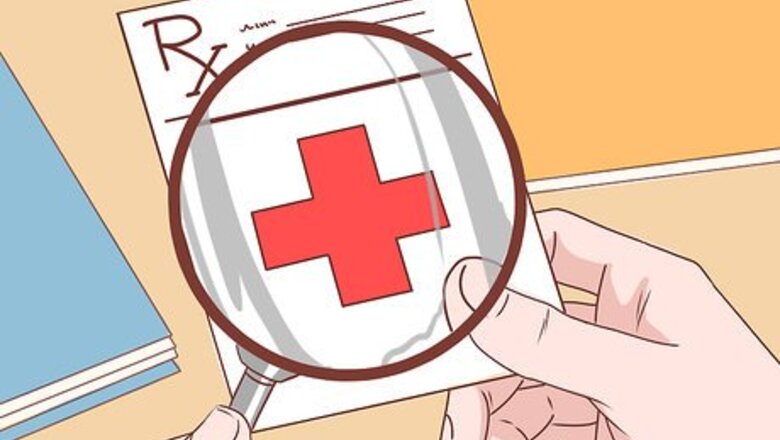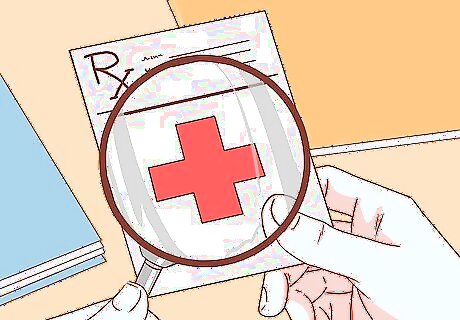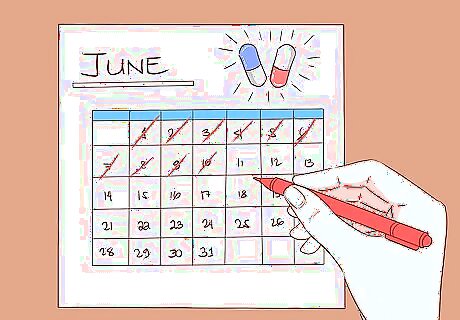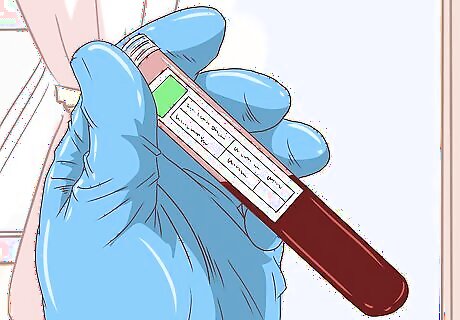
views
X
Trustworthy Source
MedlinePlus
Collection of medical information sourced from the US National Library of Medicine
Go to source
Taking the Medicine Correctly

Read your doctor's directions. When the doctor writes your prescription they will include directions for how much to take, how often to take it, and whether you need to take it with food or just water. Reviewing these directions right away will help you plan out how you will take the medication as directed. Your pharmacist may review these directions with you as well when they give you your medication.

Take your medication at the same time every day. Whether you are taking Azithromycin once or twice a day, you should always take it at the same time. This will ensure that your dose stays consistent throughout your time taking it. If you miss a dose, take it as soon as you remember. However, if you remember within an hour or 2 of the time you are supposed to take your next dose, don't take a double dose.

Take the medication for as long as directed. It is important to do this even if you are feeling much better before the prescription runs out. By taking the entire prescription, you help ensure that all the bacteria have been eliminated. If you don't eliminate all the bacteria, they can begin reproducing in your system again and the ones that remain will be more resistant to the medication in the future.
Avoid taking an antacid within 2 hours of taking Azithromycin. Taking an antacid can make it hard for your body to effectively absorb the Azithromycin. Either take your antacid 2 hours before or 2 hours after taking this medication.

Contact your doctor if you don't get any better. If you have taken your medication for a week or so and there has been no improvement, you should let your doctor know. They may tell you to continue your treatment but they may decide to try another option instead. It can take several days for Azithromycin to start eliminating your infection. Give it some time to work before reaching out to your physician.
Dealing With Side Effects

Get immediate medical care if symptoms of a life-threatening condition occur. There are specific side effects associated with liver problems or an allergic reaction to Azithromycin that you should be on the lookout for. If you get any of these symptoms, you should contact your doctor immediately. They include: Extreme tiredness or weakness. Loss of appetite. Pain in your upper stomach. Dark urine. Yellowing of your skin or the whites of your eyes. Trouble breathing. Swelling of your face, lips, tongue, or throat. Hives. Severe skin reactions, such as red, blistering skin or skin sloughing.

Contact your doctor if you have severe side effects. Azithromycin can commonly cause mild cases of diarrhea, nausea, stomach pain, and vomiting. However, if these symptoms become severe and disabling, you should call your doctor and get advice about whether or not to continue taking the medication. If your side effects are annoying but not debilitating, you can still call your doctor and discuss ways to alleviate the side effects you have.

Have your liver function tested if you have a history of liver problems. If you have a history of liver problems, such as liver disease, it's important to make sure the Azithromycin is not negatively impacting your liver. Discuss the need for monitoring with your doctor and set up weekly or bi-weekly tests while taking the medication.

Add probiotic foods or supplements to your diet. This will help replace some of the gut bacteria that may be killed in your digestive tract by the Azithromycin. Probiotics can be added to your diet in several different ways, including taking L. acidophilus supplements and eating foods that are high in probiotics, such as yogurt. It's always a good idea to talk to your doctor before taking a supplement, especially when they are treating you for an infection.













Comments
0 comment